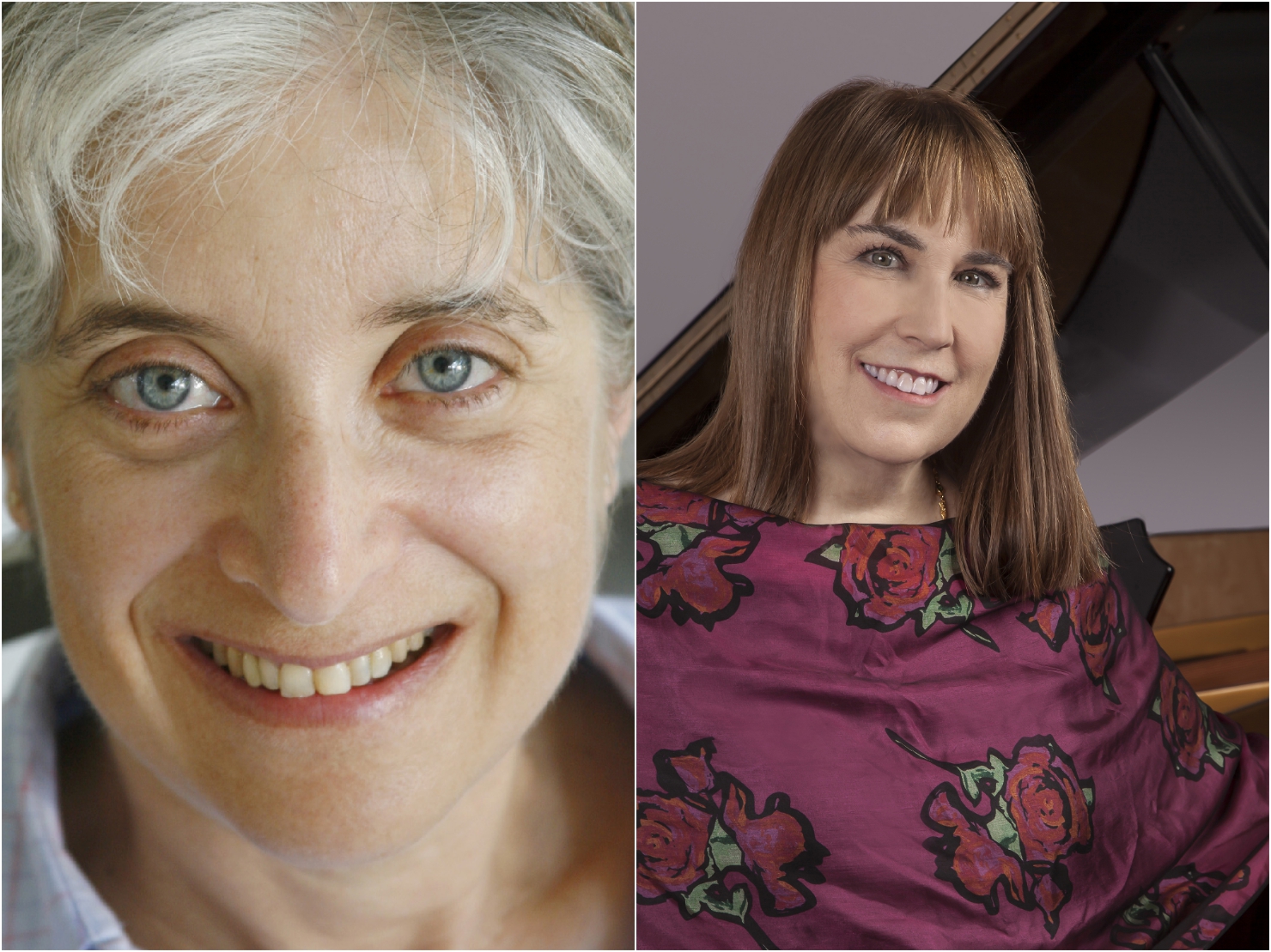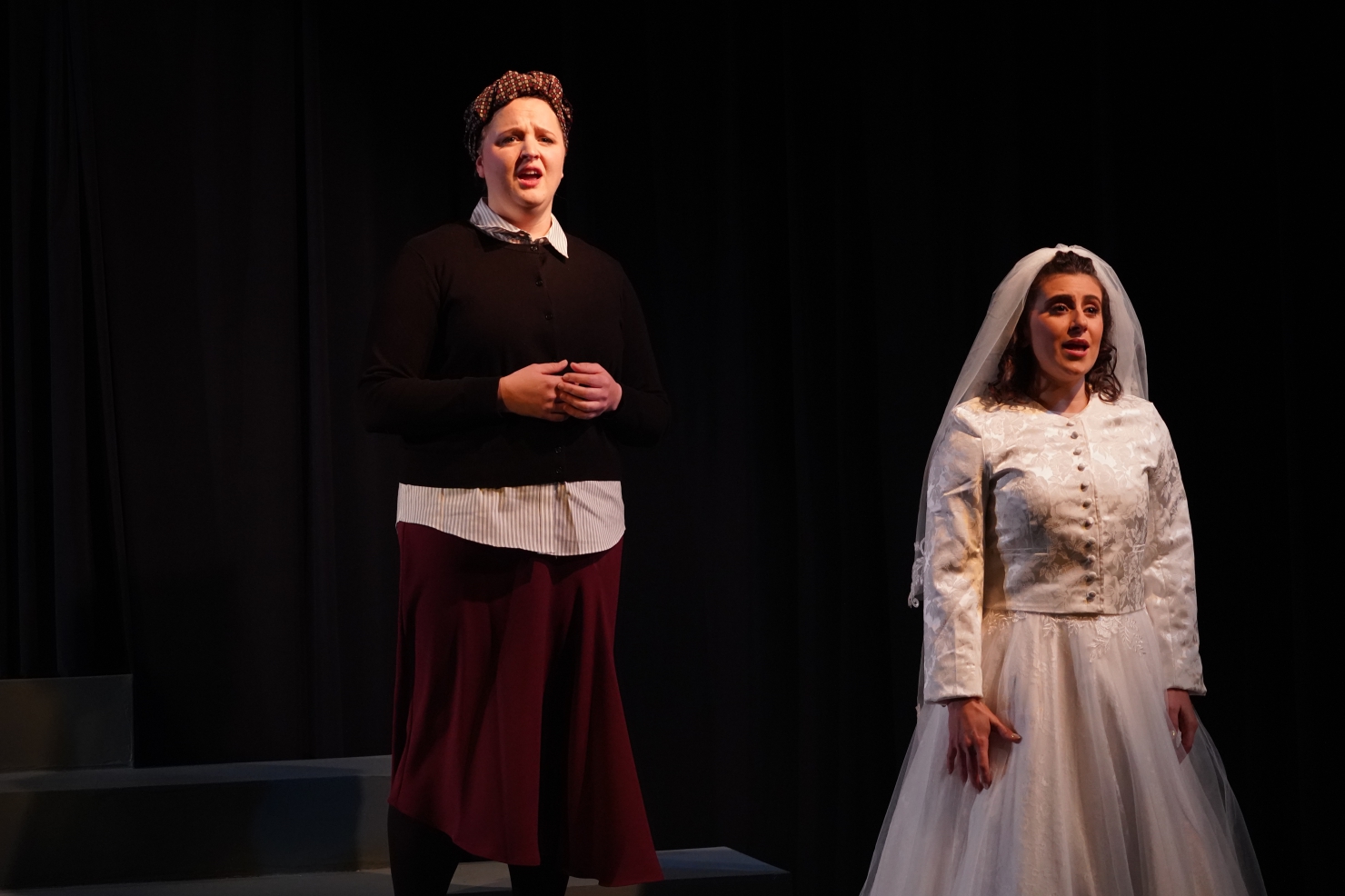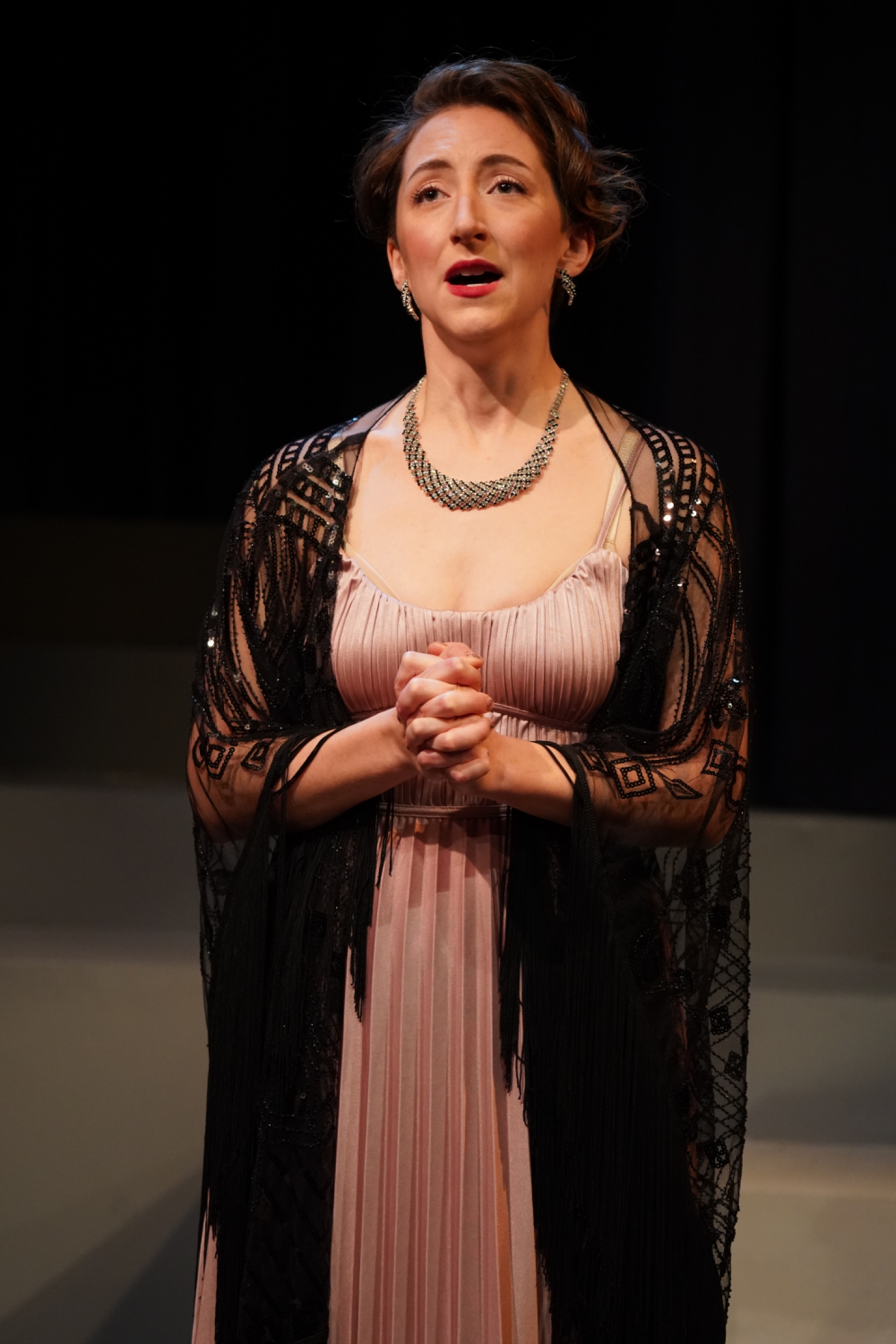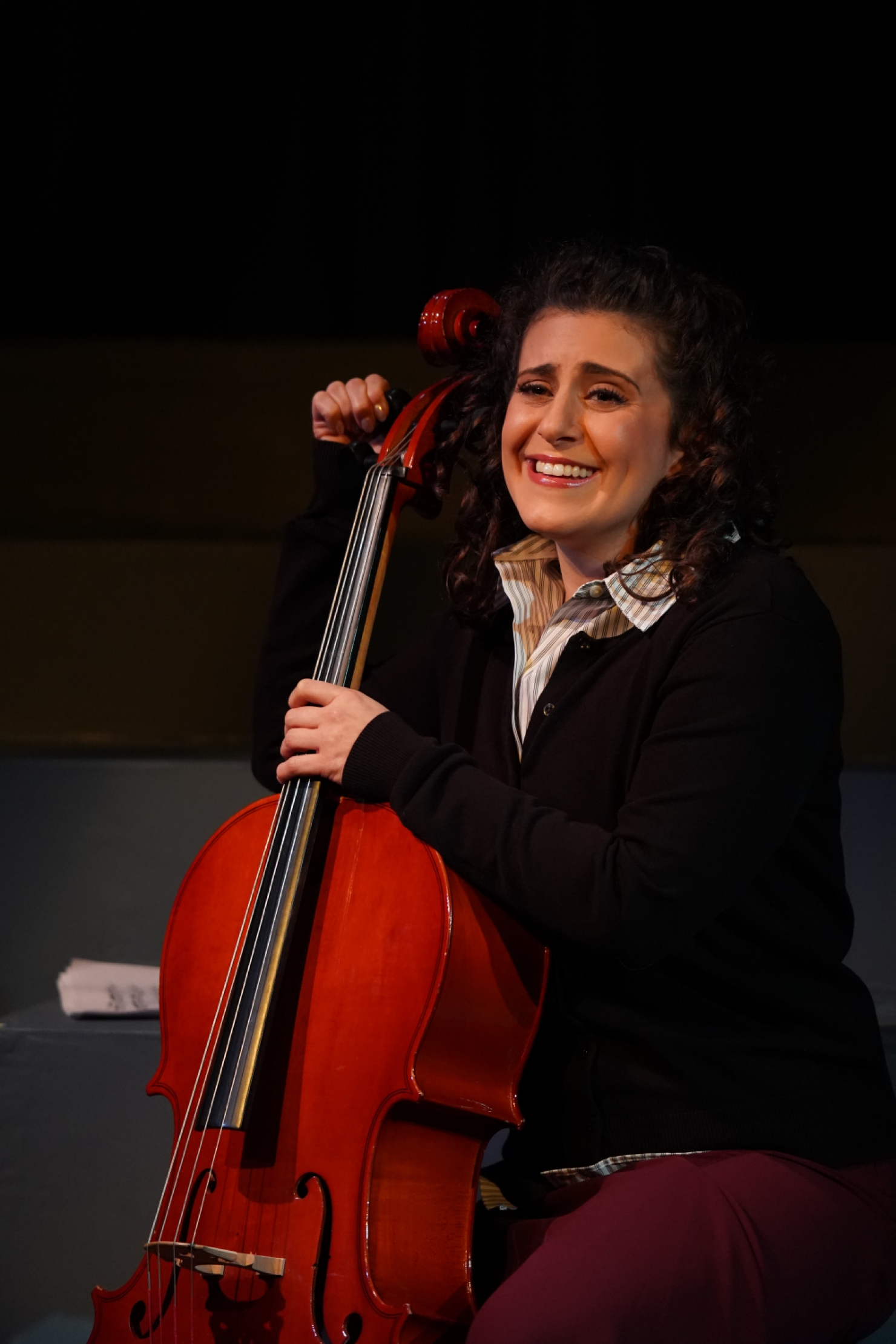
Running Time
ReviewThere is an unfortunate trend currently in live theater. It’s not clear if the demand is coming from audiences or from theater companies who are either listening to their audiences or to the bottom line of their budgets. The trend is to present works that have no intermission, and this may satisfy those who have short attention spans and force artists to make decisions about potential overindulgence. But it can also be harmful when it comes to telling a complete and compelling story.
Uncovered, a new opera with a running time of 90 minutes (with no intermission) is a strong example of a work of art compromised by the need to avoid the more traditional two-act or multi-act formats. The New York premiere of this work at the HERE Arts Center has a lot going for it…a LOT…but the enormous potential of a full, satisfying meal is reduced to a sometimes delicious appetizer of Swiss cheese.
There is quite a bit of potential lost. Lori Laitman, who composed the music, is one of the stars of the evening. Even without the vocal parts, Ms. Laitman has composed an exciting score for a quartet of piano, clarinet, cello and violin that is good enough to be played as a chamber piece in any concert hall. This is not to say that Ms. Laitman’s vocal score is anything less. There are some beautiful solos and duets. Add to this some great chorus harmonies, and this should have added up to a new hit in the world of opera.

The true story of a Hasidic woman who broke away from her community, made for a popular TV show (Unorthodox). And the true story of a scandal involving a lesbian couple in the Jewish community made for a successful, often-produced play with music (Indecent.) Uncovered covers some of the same territory as a true story about a gay Hasidic woman. The libretto was written by Leah Lax, based on her published memoirs (as mentioned, this is a true story,) and she has written nine scenes that take us from her wedding to her divorce. Though the first three scenes take us in depth through one crucial night, the remaining six fly through a dozen years or more and the result is the feeling that something - or a few somethings - are missing.
Leah Lax, the librettist, tells us the story of Leah, the character, (first played by soprano Rachel Policar,) a woman who knows she is gay but is pulled by a misplaced passion and goes through with a wedding to Levi, a Hasidic man (played by tenor Chris Carr.) Though Leah is longing for a female dream lover as her wedding night approaches, she dips herself into the ritual Jewish bath known as a mikvah, and decides to “sink and submit.” Though she figuratively submerges her feelings, at the same time the warm waters of the mikvah remind her of a woman’s touch. Clearly trouble is coming.

The next scene takes us through a consummation of the marriage that is loving and sexually satisfying, but it ends with Levi being commanded to not touch his (formerly) virgin wife for twelve days. Not the start to a marriage either one of them wants - especially Leah who was hoping for a soft intimacy - but they “submit” to the laws of their religion and the stage is set for some difficult years to come.
Through a theatrical device, the role of the soprano Leah is then taken over by mezzo soprano Emily Blair, effectively telling us that time has passed and Leah is now older. “Is it me?” asks the younger Leah as she sees and changes places with her future self; the tired, frumpy, mother of multiple children.

Life is hard for the Leah-Levi family - there are constant unpaid bills that seem to pile on one another as more and more children pile into their lives. Levi’s day is filled with work and prayer and Leah’s exhausting day is filled with doing everything else. But Leah has accepted her situation and even sings a sweet song of motherhood to the baby (the latest) that she holds in her arms.
Up until now, the opera is well structured and fleshed-out. We get inside the minds of the characters and they have our deepest sympathy and attention. The next scene is where the problems really begin, not only for the characters but for the audience. Leah goes from her loving lullaby in the previous scene to the agonized cry of “Get It Out” as she seeks an abortion. Leah tells us that she believes that this pregnancy (her eighth) will be fatal, but there is no transition, no explanation of how she got here. Through the aid of their spiritual leader (bass-baritone Miguel Pedroza,) the couple has the abortion and avoids divorce. It’s all jarring and feels like something was cut.
The lyrics often use repetition, too, when we could have used some explanatory complexity.
Then again in the next scene, the opera has a disorienting plot jump: Leah rediscovers her lesbian feelings and has an affair with a woman, leading to her ultimate separation from Levi and her Hasidic surroundings. She leaves, suitcase in hand. Are we to believe that Leah hasn’t experienced these feelings in the intervening years? Not since her wedding night? Again, no breadcrumbs in earlier scenes to help us get here and no transition.
Ms. Lax’s lyrics don’t often help. Where we hope to get some clarity, we often get mixed and, ultimately, mixed-up poetic metaphors such as “your lips are like morning light.” The lyrics often use repetition, too, when we could have used some explanatory complexity.
Many of the singers prove to have deep acting chops to go along with their vocal skills. Tenor Chris Carr, in particular, as Levi the hapless husband, is poignant in his expressions of love and anguished disappointment. Mezzo Emily Blair makes a booming case for Leah’s anguish from the very depths of her body. Together they sing a heart-breaking duet after Leah’s abortion where they envision their unborn child - he a son, she a daughter.

Also in very strong support are Pedroza as the Rabbi, and mezzo Rachel Braunstein in the dual role of Grandmother/Mikvah Attendant. Mezzo Heather Jones as the Mother is a gifted performer, always in the moment even when she isn’t singing. As the Young Leah, soprano Rachel Policar is nothing short of ethereal as she manages to stay afloat in the very high vocal altitude written for her, but we need the supertitles to understand a lot of what she’s singing.
Conductor Jackson McKinnon brings out the best in his chamber group and Chorus Master Hannah Nacheman leads a small (but what turns out to be) mighty ensemble.
The first three scenes, involving the wedding, mikvah and wedding night go deep and plenty of time is taken to express Leah’s angst, Levi’s love and the pressures of their religious neighbors. Had the libretto been given room to breathe as a two-act opera, Leah’s character would have had time to struggle through the years of her marriage the way she struggled through her wedding night. We would have been affected by the dramatic turns in the plot which instead seemed forced and, instead, fall flat.


Comments